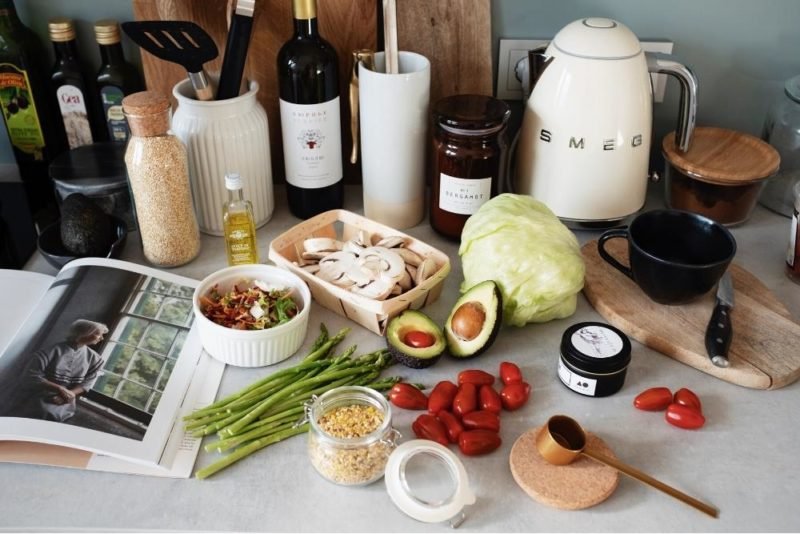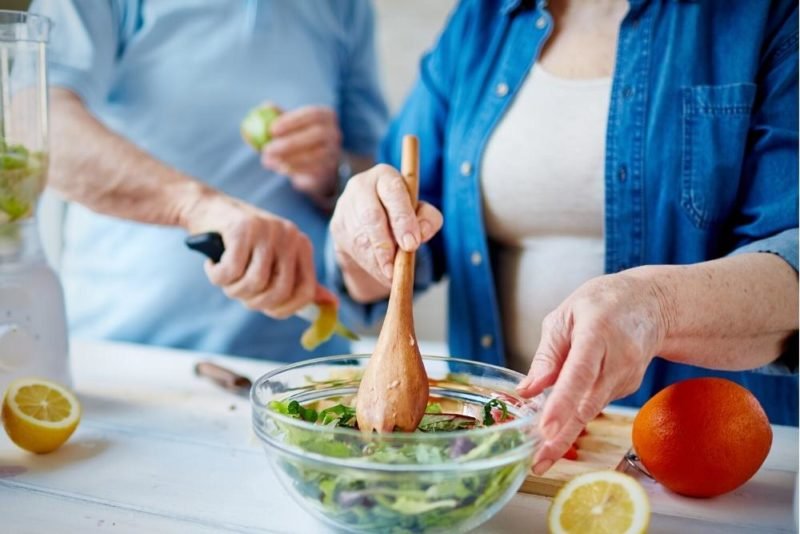
It’s a refrain I hear a little too often: “I just need someone to tell me what to eat. I don’t do well when I have to make my own decisions.”
In today’s age of rampant nutrition confusion, I sort of get it — but on another level I don’t get it, not at all. I’m not your boss, I’m not your mother, and I’m definitely not the food police. As adults, we need to develop the skills necessary to make decisions about the things that are important to our health and happiness. Why? Because…
- No one will ever be more invested in your health than you are.
- No one knows you as well as you know yourself.
Let me tell you a secret. Dietitians (most of us, anyway), hate being asked to make a meal plan, mostly because we know that they probably won’t get used. If you have even a tiny bit of the rebel in you, you will eventually balk against the “food rules” that the meal plan represents, either because that’s not what you feel like eating or because the realities of your schedule make it hard to follow.

Know Thyself
I can make myself a terrific meal plan, quite quickly, but a meal plan I make for anyone else will probably miss the mark. Why? Because I know myself better than anyone else knows me. I know:
- What I feel like eating that week.
- What ingredients I have on hand in my pantry, fridge and freezer.
- How much time I have to cook and shop that particular week.
- How many leftovers I want to have on hand.
- What events I have that week that mean I won’t be eating at home.
I don’t know those things about my patients, at least not in detail. Even if I have a general sense of their cooking skill set, their overall level of busyness, and the size of their pantry, those are only part of the picture.

Invest in Yourself
I’m sure you’ve heard the saying, “If you give a man a fish, and you feed him for a day. Teach a man to fish and you feed him for a lifetime.” Well, If I give you a meal plan, and you follow it, you will eat nutritiously for a week (whether or not you like the food on the plan is another issue). However, if I teach you to create your own meal plans (important, because we tend to eat better when we aren’t flying by the seat of our pants) and build the intuitive and mindful eating skills that help you eat in tune with your body’s hunger and fullness cues, then you can eat well for a lifetime.
While a meal plan can be useful of an example of what a week of nutritious eating looks like, a meal plan alone is not the answer.
- If you are confused about what to eat, I can help guide you to which foods to eat more of (the ones you enjoy AND help you work toward your health goal), which foods to eat less of (foods you enjoy but may work against your health goals) and which to avoid (foods that have no nutrition and, while you might eat them mindlessly, you don’t actually enjoy them).
- If you wrestle with how often to eat, I can also help guide you to a rhythm of daily eating (3 meals? 3 meals plus snacks?) that keeps you energized and prevents you from becoming primally hungry.
- If you are an emotional or stress eater (or overeater), a meal plan also can’t “save you” from those tendencies—they take time to overcome. And my time is better spent on helping you with that, than with making you a meal plan!
Related resources:
- My recent Seattle Times column, “Why one-size-fits-all meal plans don’t work“
- A previous column, “How to make meal planning your road map to better eating.”
- For more tips on doing your own meal planning, including printable planning sheets, grab my free guide below!
Disclaimer: All information provided here is of a general nature and is furnished only for educational purposes. This information is not to be taken as medical or other health advice pertaining to an individual’s specific health or medical condition. You agree that the use of this information is at your own risk.
Hi, I’m Carrie Dennett, MPH, RDN, a weight-inclusive registered dietitian, nutrition therapist and body image counselor. I offer compassionate, individualized care for adults of all ages, shapes, sizes and genders who want to break free from eating disorders, disordered eating or chronic dieting. If you need to learn how to manage IBS symptoms with food, or improve your nutrition and lifestyle habits to help manage a current health concern or simply support your overall health and well-being, I help people with that, too.
Need 1-on-1 help for your nutrition, eating, or body image concerns? Schedule a free 20-minute Discovery Call to talk about how I can help you and explore if we’re a good fit! I’m in-network with Regence BCBS, FirstChoice Health and Providence Health Plan, and can bill Blue Cross and/or Blue Shield insurances in many states. If I don’t take your insurance, I can help you seek reimbursement on your own. To learn more, explore my insurance and services areas page.
 Print This Post
Print This Post






